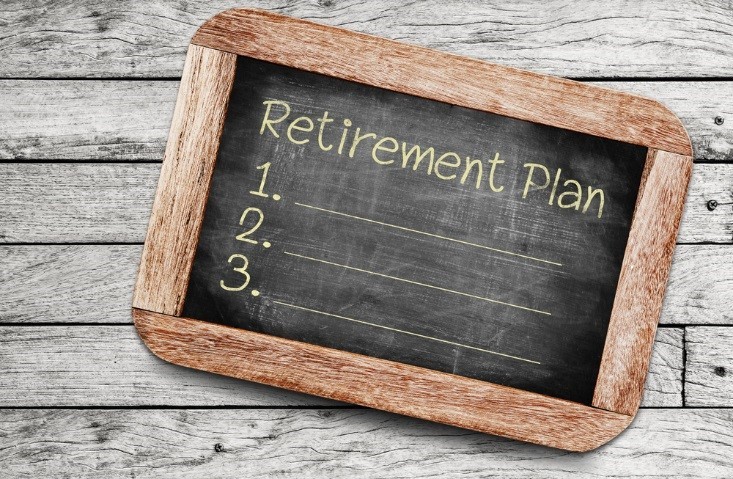Give Your Retirement Plan an Annual Checkup 1
At Coliday Insurance, Health & Financial, we recommend that you review your retirement savings plan annually and when major life changes occur. If you haven’t already revisited your plan, the beginning of a new year may be the ideal time to do so.
Re-examine your risk tolerance
This past year saw moments that would try even the most resilient investor's resolve. When you hear media reports about stock market volatility, is your immediate reaction to consider selling some of the stock investments in your plan? If that's the case, you might begin your annual review by re-examining your risk tolerance.
Risk tolerance refers to how well you can ride out fluctuations in the value of your investments while pursuing your long-term goals. An assessment of your risk tolerance considers, among other factors, your investment time horizon, your accumulation goal, and assets you may have outside of your plan account. Your retirement plan's educational materials likely include tools to help you evaluate your risk tolerance, typically worksheets that ask a series of questions. After answering the questions, you will likely be assigned a risk tolerance ranking from conservative to aggressive. In addition, suggested asset allocations are often provided for consideration.
Have you experienced any life changes?
Since your last retirement plan review, did you get married or divorced, buy or sell a house, have a baby, or send a child to college? Perhaps you or your spouse changed jobs, received a promotion, or left the workforce entirely. Has someone in your family experienced a change in health? Or maybe you inherited a sum of money that has had a material impact on your net worth. Any of these situations can affect both your current and future financial situation.
In addition, if your marital situation has changed, you may want to review the beneficiary designations in your plan account to make sure they reflect your current wishes. With many employer-sponsored plans, your spouse is automatically your plan beneficiary unless he or she waives that right in writing.
Re-assess your retirement income needs
After you evaluate your risk tolerance and consider any life changes, you may want to take another look at the future. Have your dreams for retirement changed at all? And if so, will those changes affect how much money you will need to live on? Maybe you've reconsidered plans to relocate or travel extensively, or now plan to start a business or work part-time during retirement.
All of these factors can affect your retirement income needs, which in turn affects how much you need to save and how you invest today.
Is your asset allocation still on track?
Once you have assessed your current situation related to your risk tolerance, life changes, and retirement income needs, a good next step is to revisit the asset allocation in your plan. Is your investment mix still appropriate? Should you aim for a higher or lower percentage of aggressive investments, such as stocks? Or maybe your original target is still on track, but your portfolio calls for a little rebalancing.
There are two ways to rebalance your retirement plan portfolio. The quickest way is to sell investments in which you are over-weighted and invest the proceeds in under-weighted assets until you hit your target. For example, if your target allocation is 75% stocks, 20% bonds, and 5% cash but your current allocation is 80% stocks, 15% bonds, and 5% cash, then you'd likely sell some stock investments and invest the proceeds in bonds. Another way to rebalance is to direct new investments into the under-weighted assets until the target is achieved. In the example above, you would direct new money into bond investments until you reach your 75/20/5 target allocation.
Revisit your plan rules and features
Finally, an annual review is also a good time to take a fresh look at your employer-sponsored plan documents and plan features. For example, if your plan offers a Roth account and you haven't investigated its potential benefits, you might consider whether directing a portion of your contributions into it might be a good idea. Also consider how much you're contributing in relation to plan maximums. Could you add a little more each pay period? If you're 50 or older, you might also review the rules for catch-up contributions, which allow those approaching retirement to contribute more than younger employees.
Although it's generally not a good idea to monitor your employer-sponsored retirement plan on a daily, or even monthly, basis, it's important to take a look at least once a year. With a little annual maintenance, you can help your plan keep working for you.
Organizing Important Records and Documents 3
A record keeping system is a systematic approach to retaining and filing documents in a way that makes them easy to find when needed, even if it's several years later. Record keeping systems range from simple to elaborate and from basic to comprehensive. The ideal system is designed to fit your personal and family situation and lifestyle.
Some record keeping is mandatory; good record keeping is important
The most important thing to know about record keeping is that doing it well will save you a lot of time and money during your lifetime. Conversely, poor record keeping is sure to cost you in terms of money, time, and aggravation, perhaps dearly. For instance, assuming that you've been generally honest with the IRS, the only reason to fear a tax audit is that your records are incomplete or in disarray. If so, the IRS could find that you owe more tax than you paid. Insurance and legal claims frequently require supporting documents as well.
Record keeping is also important for estate planning purposes. After you pass away, your family and the executor of your estate will be grateful to find your records complete and in a meaningful order.
It is up to you to decide what your record keeping system will include
The items you decide to retain in your record keeping system will depend on several factors, including:
- Your personal and family situation
- The nature of your assets and investments
- Your household's number and type of income sources
- Your tolerance for risk
- The time you'll realistically devote to keeping records systematically

In addition to financial documents, you'll probably want your system to retain other types of important documents, such as insurance policies; health and employment records; property titles; certificates of birth, death, and citizenship; and product and service guarantees. Today, it is also common to videotape personal property for potential use as evidence in an insurance claim.
Create a record keeping system that works best for you
If throwing all your receipts, bills, and paycheck stubs into the proverbial shoe box until tax time is the best you can manage, then it will have to do. However, devising a systematic approach to retaining and filing your important documents will bring rewards you will appreciate in the future. If you can find little time for record keeping, then a simple system may be the answer. On the other hand, a more complex system that retains and files all potentially necessary documents on a weekly or monthly basis assures that when a need arises, you'll be able to retrieve whatever you need promptly and without fuss. You might view this as pay now or pay later.5
When it comes to a safe and secure method of storing your documents and records, we have the solution! Generational Vault is a virtual safe deposit box that allows you to store your important files, pictures and other items. Additionally, the Vault offers a comprehensive view of your financial picture. Better yet, your stored data is accessible anywhere you have an Internet connection – 365 days a year, 24 hours a day.
Call our office at 949-216-8459.
1 3Broadridge Investor Communication Solutions, Inc. Copyright 2015.
2 http://list25.com/25-interesting-facts-valentines-day/ 4 http://www.foodnetwork.com/recipes/alton-brown/cocoa-brownies-recipe.html?oc=linkback
5 gradientfinancialgroup.com Newsletter Insurance products and services are offered through Craig Colley | Coliday and is not affiliated with Gradient Securities, LLC. Some of these materials are provided for general information and educational purposes based upon publicly available information from sources believed to be reliable—we cannot assure the accuracy or completeness of these materials. The information in these materials may change at any time and without notice.
